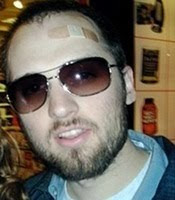The fourth episode of Lost’s Season Four arrives with one of the most puzzling titles to date in the series,
Eggtown. Like almost every Lost episode title,
Eggtown refers to a number of different things: the eggs in Ben’s breakfast, the Easter eggs to which Locke alludes, the possibility of Kate’s pregnancy, and even an obscure antiquated term used in bargaining. While the title invokes all of these ideas to varying degrees, the title’s most interesting application is to the classic riddle:
Which came first, the chicken or the egg?
Which of these two things is the cause and which is the effect? If every effect in the universe has a cause, then what was the ultimate cause that came before all of those causes? This paradox of causality has persisted throughout history, for everyone from Aristotle to Stephen Hawking. (If you don’t enjoy these types of riddles, then Locke shows us perhaps the only way to escape this endless puzzle: simply eat all of the eggs and kill the chicken.)





